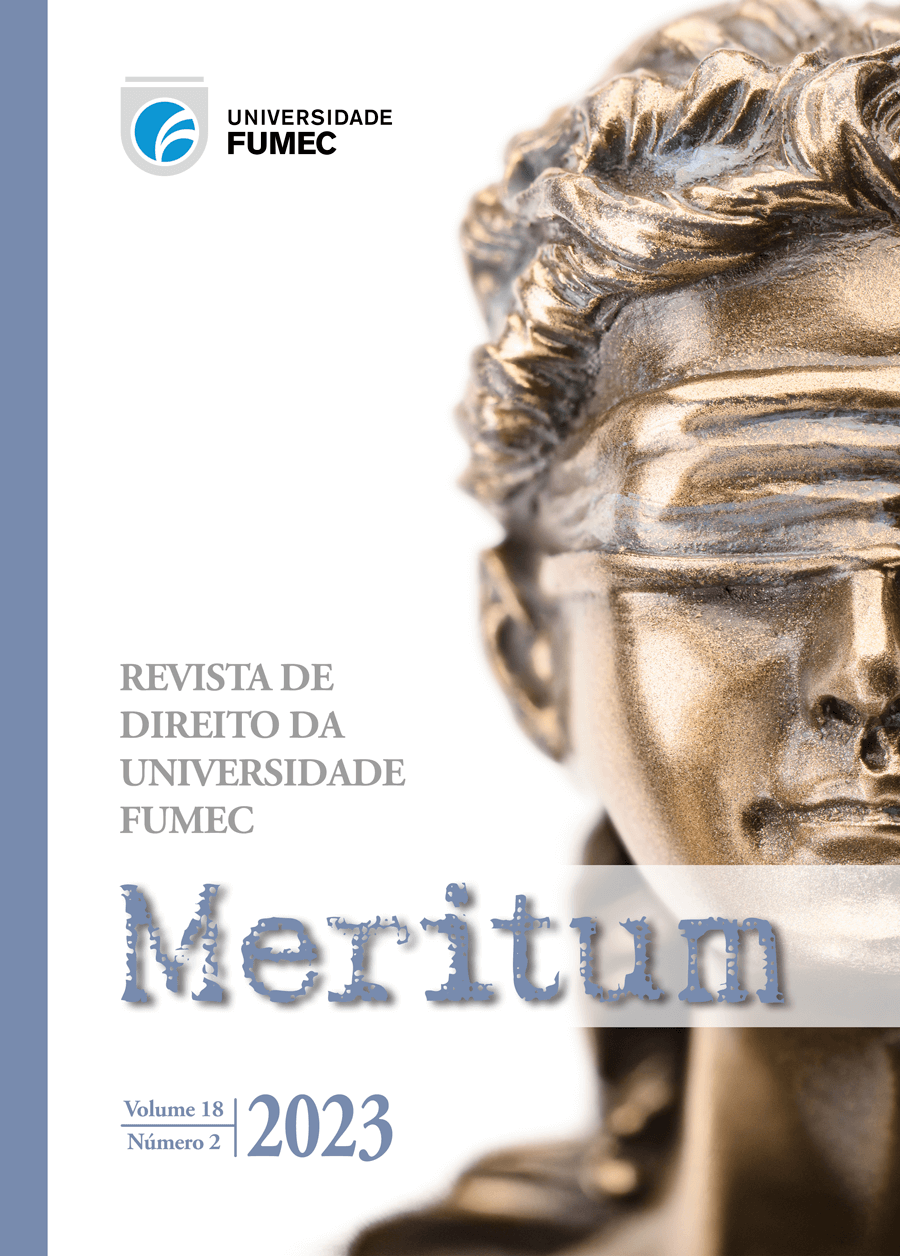DIGNITY AND FREEDOM OF EXPRESSION IN THE ELECTORAL PROCESS IN THE DIGITAL AGE
DOI:
https://doi.org/10.46560/meritum.v18i2.8978Abstract
The objective of this research is to discuss the electoral process in the digital age, focusing on nuances about the guarantees of rights such as freedom of expression and the dignity of the human person, identifying the premises established in the Brazilian constitution judged by the STF. Recognizing the possibility of restrictions necessary for the health of the electoral process, one can see the importance of zeal for rights in the context of electoral processes. The focus on the digital age comes from the perception that there is a symbolic game of involvement and conquest around political choices, in which individuals are led and convinced to make decisions and positions. In this scenario, there is media activity as a propagator of ideas, projects and oppositions. Given the breadth of the theme, the time frame will be Brazilian society during the course of the 2000s and the entire analysis will be carried out in the light of Brazilian electoral law. As for the methodological procedures, this is an exploratory research, of a qualitative nature, in which the deductive approach method and research techniques of bibliographical and documental review were adopted.
Downloads
Published
Issue
Section
License
Autores que publicam nesta revista concordam com os seguintes termos:
- Autores mantém os direitos autorais e concedem à revista o direito de primeira publicação, com o trabalho simultaneamente licenciado sob a Licença Creative Commons Attribution que permite o compartilhamento do trabalho com reconhecimento da autoria e publicação inicial nesta revista;
- Autores têm autorização para assumir contratos adicionais separadamente, para distribuição não-exclusiva da versão do trabalho publicada nesta revista (ex.: publicar em repositório institucional ou como capítulo de livro), com reconhecimento de autoria e publicação inicial nesta revista;
- Autores têm permissão e são estimulados a publicar e distribuir seu trabalho online (ex.: em repositórios institucionais ou na sua página pessoal) a qualquer ponto antes ou durante o processo editorial, já que isso pode gerar alterações produtivas, bem como aumentar o impacto e a citação do trabalho publicado (Veja O Efeito do Acesso Livre).






